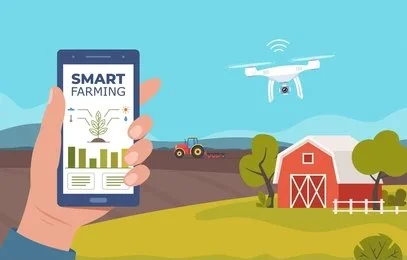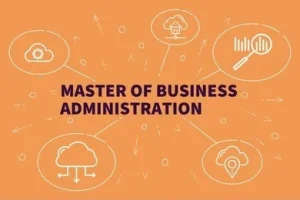The foundation of India’s economy is agriculture. Over half of India’s population is said to depend on this sector for their livelihood. Additionally, agriculture contributes significantly to the agricultural GDP and drives agro-based sectors like food processing. Given that more than 70% of people live in rural regions, it is impossible to overlook the enormous scale and expansion of the rural sector. On a larger scale, the rural economy can support economic growth and prosperity.
However, a committed group of knowledgeable and experienced personnel is necessary for the efficient administration of rural and agro-based businesses. Students who complete a Post-graduate Diploma in Management (PGDM) in Agribusiness Management or Rural Management program gain information and abilities unique to the profession. The goal of these programs is to equip young people with market-specific and industry-relevant information so they may utilise their skills to improve their chances of finding work. We will examine these two fields today and learn about their distinctions!
PGDM in Rural vs. Agribusiness Management: An Overview
| Parameters | PGDM in Rural Management | Agribusiness Management |
| Focus | The course focuses on the holistic development and management of rural areas and communities. | Agribusiness Management deals with the business and management aspects of agricultural enterprises. |
| Level Of Programme | Masters | Masters |
| Duration Of Programme | 2 Years | 2 Years |
| Area Of Expertise | Development in rural areas, social welfare, governmental policies, and community service. | Agricultural marketing, farm management, food production, supply chain management, and agri-entrepreneurship. |
| Key Skills | Community EngagementPublic Policy AnalysisSocial DevelopmentProject ManagementCommunicationResearch and Data AnalysisLeadership | Marketing and SalesSupply Chain ManagementFinancial ManagementAgricultural ExpertiseBusiness StrategyEntrepreneurshipMarket ResearchRisk ManagementSustainability |
PGDM in Rural vs. Agribusiness Management: Curriculum
A PGDM in rural management offers students a comprehensive curriculum that enables them to address the unique challenges encountered in rural areas. The curriculum encompasses sustainable methodologies, rural development, agribusiness administration, and community engagement. To advance rural development, students delve into subjects such as social entrepreneurship, project administration, and rural economics. The curriculum encompasses the following fundamental areas:
- Rural Development
- Participation in the Community
- Rural Economics
- Social Entrepreneurship
- Project Management
- Public Policy Analysis
- Sustainable Practices in Rural Marketing
- Banking and Finance in Rural Areas
- Enhanced Quality of Life
- Agricultural Extension Services
- Environmental Sustainability
- Health and Education in Rural Areas
- Data Analysis and Research Methods
The PGDM in agribusiness management offers a comprehensive comprehension of the agricultural and agri-food industries. A variety of subjects, such as agricultural marketing, supply chain management, financial management, and business strategy tailored to the agricultural sector, are included in the curriculum. Students acquire a profound comprehension of agricultural technology, crop and livestock management, and farming practices. Furthermore, the program emphasises the development of logistical efficiencies and marketing and sales strategies. The curriculum encompasses the following main areas:
- Agricultural Marketing Supply Chain Management
- Business Strategy for Agriculture Agribusiness Entrepreneurship Market Research in Agriculture Risk Management in Agriculture Financial Management in Agribusiness Crop and Livestock Management
- Practices of Sustainable Agriculture
- Agribusiness Economics
- Agricultural Technology and Innovation Farm Management
- Strategies for Agriculture Marketing
- International Agribusiness
PGDM in Rural vs. Agribusiness Management: Career Scope
A PGDM in rural management provides a wide variety of rewarding career opportunities in a variety of sectors, such as government agencies, non-governmental organisations (NGOs), international organisations, and social enterprises. Students are allowed to participate in community engagement, advocacy, and project administration, which significantly contributes to the improvement of the quality of life in rural areas. Additionally, students have the opportunity to investigate career opportunities in agricultural cooperatives and rural marketing, thereby promoting the sustainability of rural livelihoods.
On the other hand, a PGDM in agribusiness management allows students to excel in a variety of roles, including Agra-entrepreneurs, farm management consultants, and agricultural marketing managers. Students have the opportunity to secure employment in agribusiness consulting, food processing firms, and agricultural companies. Additionally, with the application of their skills and knowledge, students can improve the efficacy of agricultural product production, distribution, and marketing. In the realm of financial management and risk analysis, there are additional opportunities to resolve prospective challenges and ensure financial stability.
Conclusion
Both PGDM in Rural Management and Agribusiness Management play pivotal roles in nurturing professionals equipped to address sector-specific challenges. While Rural Management focuses on fostering social development and enhancing quality of life in rural areas, Agribusiness Management emphasizes the growth of agricultural enterprises and market efficiencies. Together, these programs contribute to economic prosperity by bridging gaps between rural potential and market dynamics. Students gain diverse expertise, enabling them to drive innovation, sustainability, and development. As agriculture continues to anchor India’s economy, such specialized education ensures a future-ready workforce capable of transforming rural and agro-based industries.






